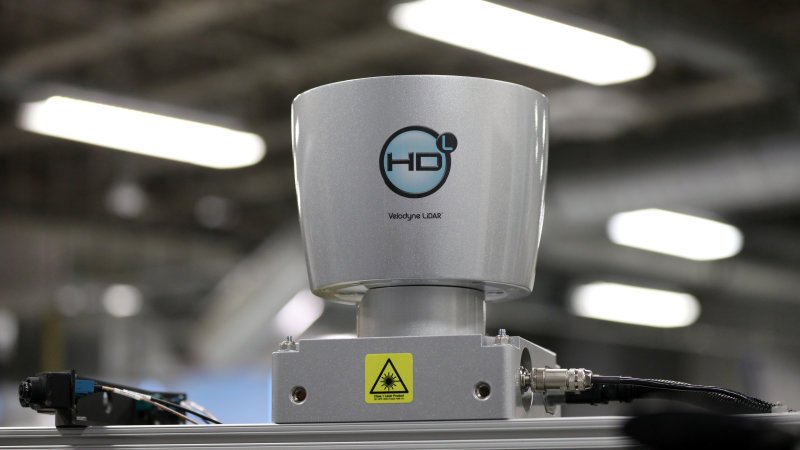Apple in a quest for smaller, cheaper lidar for self-driving cars

Apple Inc has held talks with at least four companies as possible suppliers for next-generation lidar sensors in self-driving cars, evaluating the companies' technology while also still working on its own lidar unit, three people familiar with the discussions said.
The moves provide fresh evidence of Apple's renewed ambitions to enter the autonomous vehicle derby, an effort it calls Project Titan. The talks are focused on next-generation lidar, a sensor that provides a three-dimensional look at the road.
Apple is seeking lidar units that would be smaller, cheaper and more easily mass produced than current technology, the three people said. The iPhone maker is setting a high bar with demands for a "revolutionary design," one of the people familiar with the talks said. The people declined to name the companies Apple has approached.
The sensor effort means Apple wants to develop the entire chain of hardware to guide autonomous vehicles and has joined automakers and investors in the race to find winning technologies.
Current lidar systems, including units from Velodyne Inc mounted on Apple's fleet of self-driving test vehicles, use laser light pulses to render precise images of the environment around the car. But the systems can cost $100,000 and use mechanical parts to sweep the laser scanners across the road.
That makes them too bulky and prone to failure for use in mass-produced vehicles. The shortcomings have spurred $1 billion in investment at dozens of startups and mature companies alike to make lidar smaller, cheaper and more robust.
Apple's interest in next-generation lidar sensors comes as it has sharply increased its road testing while bringing on key hires from Tesla Inc and Alphabet Inc's Google.
It remains unclear whether the goal of Apple's Project Titan is to build its own vehicle or supply the hardware and software elements of self-driving car while pairing with a partner for the entire vehicle.
But what is clear from Apple's interest in cheaper lidar systems is that it wants to control the "perception stack" of sensors, computers and software to drive an autonomous vehicle, regardless of who makes the vehicle, another person familiar with the talks said. The three people familiar with the talks declined to be identified because the discussions are not public.
In addition to evaluating potential outside suppliers, Apple is believed to have its own internal lidar sensor under development, two of the people said.
Alphabet-owned Waymo has taken a similar path, assembling a sensor and computer system while inking deals to buy vehicles from Fiat Chrysler Automobiles.
Apple gets "a lot of optionality by working on the perception stack," said the second person familiar with the talks. "Bringing a passenger car to the market is really, really hard, and there's no reason right now they need to jump into it."
Reducing costs
The designs Apple is seeking could potentially be made with conventional semiconductor manufacturing techniques, all four people familiar with the talks said.
That has the potential to lower prices from the many thousands to the hundreds of dollars as the sensors are produced in larger numbers, similar to chips in phones and other devices. Apple also wants sensors that can see several hundred meters (yards) down the road.
The long-distance requirement shows Apple is interested in fully self-driving vehicles, versus the more limited features such as adaptive cruise control used today, two people familiar with the matter said.
"They're not happy with most of what they see," the first person familiar with the matter said. "They're looking for a revolutionary design."
A third person familiar with the matter said Apple is seeking a "design-oriented" sensor that would be sleek and unobtrusive enough to fit into the overall lines of a vehicle.
Apple declined to comment.
Apple once investigated building its own vehicle. The company had a team of more than a dozen engineers dedicated to detailed work such as ensuring doors closed quietly instead of slamming shut, a fourth person briefed on the matter said.
Apple last year re-hired Doug Field, an Apple veteran who was serving as Tesla's engineering chief, to work on Project Titan. The project has about 1,200 people, according to a count in court documents.
Field has been putting his stamp on the effort, laying off about 190 workers but also bringing on key hires such as Michael Schwekutsch, who oversaw electric drive train technology at Telsa. Apple also ramped up its testing miles in California, driving nearly 80,000 last year compared to 800 the year before.
(Reporting by Stephen Nellis in San Francisco; Editing by Greg Mitchell and Cynthia Osterman)
Related News
